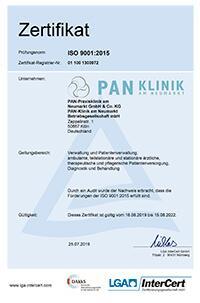About the disease
Hemorrhoids are swollen veins in the anus and lower rectum, which can be very painful. This condition can be caused by excessive pressure on the bowel, strenuous childbirth or weak rectum muscles. It can also be caused by obesity and frequent anal intercourse. Hemorrhoids are very common, with 7 out of 10 people having it at some point in their life.
There are three main types of hemorrhoids:
- Internal hemorrhoids that develop inside the rectum
- External hemorrhoids that are located around the anus and are more symptomatic
- Thrombosed hemorrhoids is the most dangerous condition, as it causes the accumulation of clots, which result in severe pain and inflammation
If not treated, hemorrhoids can result in a prolapse, where the bowel and rectum become displaced. A prolapse usually develops in people with combined internal and external hemorrhoids.
According to the American Gastroenterological Association, the prevalence of hemorrhoids in adults is 30-40% in the US alone. The peak incidence of hemorrhoids is in patients aged between 45-65 years old. It is slightly more common in women than in men. Occurrence of this condition in people younger than 20 years old is extremely rare.
Symptoms
- Pain in the rectum
- Itching
- Internal discomfort
- Bleeding
- Lump and irritation in the anal region
Diagnosis
Hemorrhoids is usually diagnosed during a physical examination, where a doctor examines the rectum and anal canal.
- A digital examination can determine whether a patient has a bump or any other suspicious growth in the anal canal or rectum.
- Examination with an anoscope is also used to examine the place of irritation and determine which type of hemorrhoids the patient has.
Treatment
- Sclerotherapy is the most common type of hemorrhoids treatment and is also used to repair damaged blood vessels and other vascular malformations. During this procedure, the doctor injects a special medicine, which makes the swollen blood vessels shrink.
- Ligation is another surgical option. A rubber band is wrapped around the hemorrhoid, obstructing the flow of blood until the hemorrhoid has shrunk and stops hurting. It usually takes the hemorrhoid 2-7 days to disappear. The success rate of this surgery is very high, reaching almost 80% on average.
After the surgery you will need to follow certain guidelines, such as eating high-fiber food to avoid constipation and applying hemorrhoid cream where there is inflammation.
Authors: Dr. Nadezhda Ivanisova, Dr. Sergey Pashchenko

















